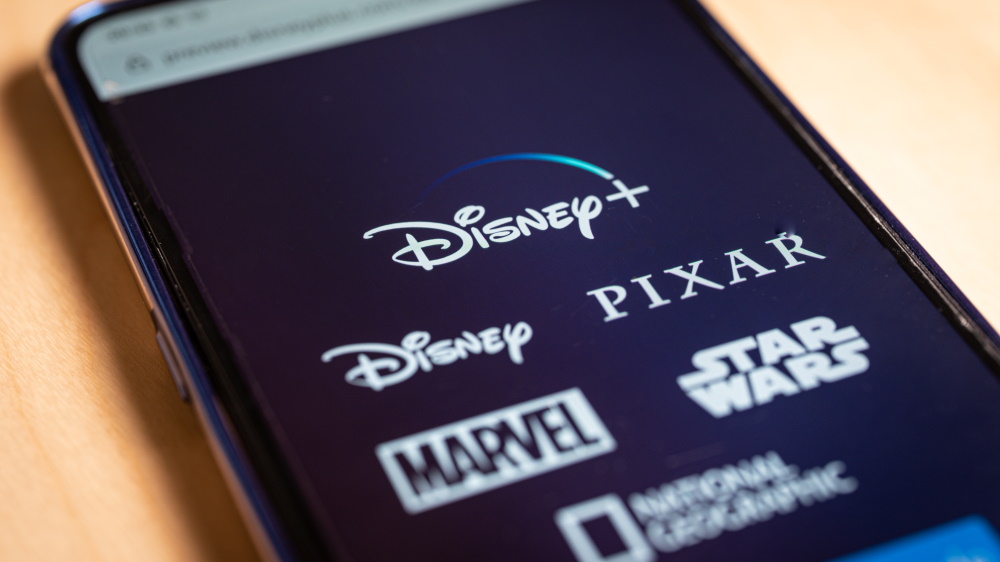Disney Plus password-sharing crackdown is starting sooner than expected
Will start Canada to begin with, according to a new report

Sign up for breaking news, reviews, opinion, top tech deals, and more.
You are now subscribed
Your newsletter sign-up was successful
Disney Plus is apparently bringing its password sharing crackdown into play in a much swifter timeframe than expected.
In fact, the first rumblings of the enforcement of this policy are happening now, at least in Canada to begin with, as a report from Whatsondisneyplus.com explains.
As we already know, November 1, 2023 is the launch date for the new ad-supported tier for Disney Plus in Canada, and the UK and Europe, where that advert-fueled plan will run alongside a standard (pricier) ad-free offering (both of which allow for two separate streams to run).
The kicker is that ahead of this new tier setup in Canada, updated subscriber agreements are being sent out to Disney Plus viewers, specifying more info on how password sharing restrictions will work.
The new rules on account sharing state: “Unless otherwise permitted by your Service Tier, you may not share your subscription outside of your household. ‘Household’ means the collection of devices associated with your primary personal residence that are used by the individuals who reside therein.”
The blurb adds: “We may, in our sole discretion, analyze the use of your account to determine compliance with this Agreement. If we determine that you have violated this Agreement, we may limit or terminate access to the Service and/or take any other steps as permitted by this Agreement.”
Separately, a Disney Plus help document was updated less than a week ago (according to Google) to clarify who you can share a Disney Plus account with.
Sign up for breaking news, reviews, opinion, top tech deals, and more.
Mirroring the aforementioned subscriber agreement in Canada, that help text now reads: “You may not share your account and subscription outside of your household. ‘Household’ means the collection of devices associated with your primary personal residence that are used by the individuals who reside therein.”
In short, only devices operating from within your primary residence can use the service (and just two of them, in the case of the new Standard plans).

Analysis: How soon? Really?
This is a bit of an eye-opener, because as the report notes, Disney CEO Bob Iger had previously talked about a password sharing crackdown, and efforts to “drive monetization” for Disney’s streaming service more effectively this way, but that these tactics wouldn’t happen until 2024.
Indeed, we were led to believe that the actual plans might not be put into action until more like 2025, perhaps, and that there might not be too much to worry about in any near-ish future.
However, it appears that the machinery is already cranking up and moving into place, in Canada at any rate – and more broadly, in Disney’s Help Centre bumph – which would suggest that this is happening before 2023 is out (and when the new tiers kick off, maybe, at least in Canada, or that’s the suggestion).
That would further offer the suggestion that the rules are going to kick in elsewhere, soon enough, in all likelihood. So, if you thought you had a long time to wait before having to worry about this equivalent to the Netflix password sharing stamp-out, it looks like that may not be the case.
We shouldn’t jump to conclusions based on one report, but what we’re hearing here is certainly ominous, and very much a suggestion that the password sharing crackdown is a lot closer to happening than we previously believed.
There are other questions around the new policy, too, such as how it might work if you’re traveling and want to use your Disney Plus subscription from, say, an Airbnb. There are certainly more questions than answers at this point, so let’s hope some clarification is inbound from Disney itself here.
You might also like
Darren is a freelancer writing news and features for TechRadar (and occasionally T3) across a broad range of computing topics including CPUs, GPUs, various other hardware, VPNs, antivirus and more. He has written about tech for the best part of three decades, and writes books in his spare time (his debut novel - 'I Know What You Did Last Supper' - was published by Hachette UK in 2013).